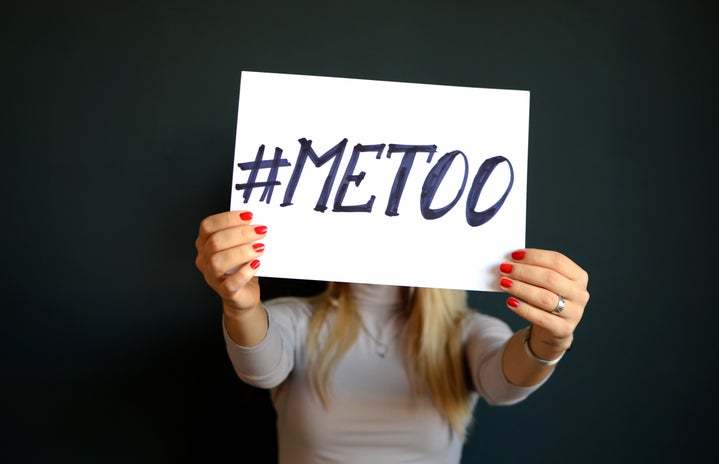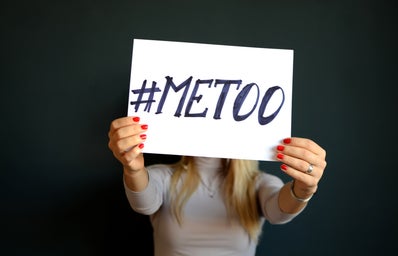In college, it’s normally discouraged to spend a lot of time on social media. The stereotype of college students being unproductive on their phones is so overplayed. For Nadeen Ashraf, social media has become how she makes a difference.
Ashraf, 22, is a full-time college student studying philosophy by day and a sexual assault activist by night. In July, she created the @assaultpolice account on Instagram in a moment of anger to call out a man who was known for harassment on her campus.
The account slowly grew to expose more individuals who committed sexual harassment and to prompt the authorities to take action. Now, the page serves as a source of knowledge for women to learn about their rights when it comes to harassment and covers topics including rape culture in Egypt, how to deal with blackmailing and more.
“I wanted everyone to be aware and for some sort of action to take place,” Ashraf said in an interview with the American University of Cairo. “I suddenly just found myself in this role of being the mediator between these girls and women speaking out and the authorities.”
“Even though I wasn’t ready for it, I felt like I had to take on this responsibility and do it the best I could to fulfill whatever justice we could get,” Ashraf said.
Many are hailing her work as the forefront of Egypt’s #MeToo movement, similar to the #MeToo movement that originated in the United States after the allegations against Harvey Weinstein started to amass. Her work has amplified the voices of sexual harassment and violence victims for many and continues to give strength to those who are scared to come forward.
According to the research “Study on Ways and Methods to Eliminate Sexual Harassment in Egypt” conducted by the UN Women in 2013, 99% of girls and women in Egypt have reported experiencing some form of sexual harassment. It doesn’t stop there. 82% of respondents reported they didn’t feel safe walking in the streets. The first law in Egypt to criminalize sexual harassment was passed in 2014, which demonstrates the patriarchal grips that permeate the country.
However, the numbers don’t tell the whole story. There is a constant underreporting of sexual harassment because girls and women are afraid to come forward since authorities don’t always take action. Most recently, a woman was charged with ‘inciting debauchery’ and ‘violating family principles and values’ for posting a video on TikTok showing her bruised face and recounting her assault, pleading with the authorities to arrest the man who hurt her.
This is exactly the reason Ashraf created the assault account on Instagram. She was tired of hearing friends and other women’s stories erased from social media or disregarded by the authorities. After seeing a post — from a fellow student about a man who was well known for harassing and blackmailing women on her campus— disappear, she decided she had enough of being silenced.
She originally dedicated the account to making sure the authorities knew and would take action against Ahmed Bassam Zaki, the man who many already knew was guilty. After only one week, she amassed 70,000 followers and had an inbox full of women who came forward to testify that they had been harassed or assaulted by Zaki. Zaki was quickly arrested with the help of Ashraf and @assaultpolice, which encouraged more women to come forward about other perpetrators.
This unique kind of activism has empowered more women to come forward and talk about their experiences in a bold way.
In Egypt, families may discourage victims from drawing attention to their assault, or their voices are muted by the men who hurt them. But with @assaultpolice, women can speak out and let their voices be heard by people around the world. Initially, Ashraf ran the account anonymously for fear of being tracked down by the men she posted about. However, once the account started to gain more and more popularity, she let the secret out as a form of protection. If the men knew the account was run by her, then so would her currently 206,000 followers.
So, what does the Instagram account look like now? It is not just Ashraf anymore, but a team of volunteer graphic designers, translators, content producers, liaisons between organizations such as UN Women and many more. In the span of a few short months, @assaultpolice has grown to be a comprehensive set of easily accessible resources and a direct way for women in Egypt to share their stories.
“Since it started, I can definitely see things changing,” Ashraf stated in an interview with News@AUC from the American University in Cairo. “I’m more grateful than anything for the conversations that have been started as a result of this movement.”
“I want us to be able to talk about this openly in society,” Ashraf said. “The root of this movement is destroying the taboo on talking about anything sexual, and I want to keep this conversation going.”
If you want to join the effort, Assault Police is currently looking for volunteers who can assist with legal aid, providing therapy or graphic design. If you or anyone you know would like to volunteer, click here to access the application. Alternatively, if you or anyone you know would like to have resources shared on the page, you can also submit them to the same link above.


